Cultivating Sustainability: The Power of Partnership with LEAF
In an era where climate change and environmental degradation pose significant challenges, the agricultural sector has a pivotal role to play in fostering sustainability. One organisation at the forefront of this movement is LEAF (Linking Environment And Farming). With a passionate commitment to promoting sustainable farming practices, LEAF has been driving positive change for over 30 years.
This blog post delves into LEAF’s mission, their initiatives, and the transformative impact they create by partnering with agricultural stakeholders worldwide.
Our work with LEAF:
As a LEAF Demonstration farm and LEAF Marque producer, we are very proud of the work the LEAF team do to encourage other farmers to take a more sustainable approach to their farms.
In 2021, we were awarded a Queen’s Award for our industry leading approach to sustainability: from our commitment to carbon and plastic neutrality, to our LEAF Marque standards, to Duncan’s work monitoring and increasing the carbon stored in our soils.
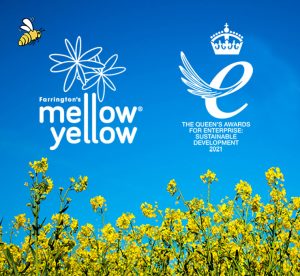
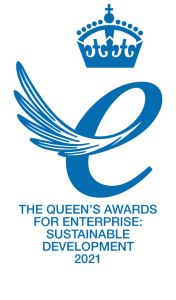
Understanding LEAF’s Mission:
LEAF’s core mission revolves around connecting farmers and consumers to promote environmentally responsible and sustainable food production. Established in 1991 in the United Kingdom, LEAF has grown into an international organisation, spreading its ethos of sustainable farming far and wide. Their approach combines practical, science-based solutions with community engagement, fostering a holistic approach to agricultural sustainability.
Integrated Farm Management (IFM):
At the heart of LEAF’s philosophy lies Integrated Farm Management (IFM). It encourages farmers to adopt best practices that enhance biodiversity, minimise chemical usage, and improve energy efficiency. IFM is made up of nine sections:
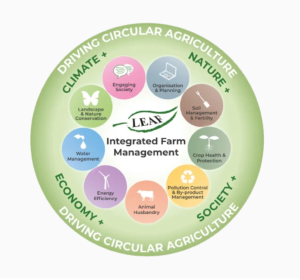
1. Organisation and Planning
2. Soil Management and Fertility
3. Crop Health and Protection
4. Pollution Control and By-product Management
5. Animal Husbandry
6. Energy Efficiency
7. Water Management
8. Landscape and Nature Conservation
9. Engaging Society
By embracing IFM, farmers can optimise their land’s potential while safeguarding the natural resources that sustain us all.
The LEAF Marque:
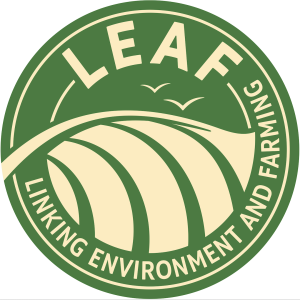
One of LEAF’s most recognised initiatives is the LEAF Marque, a certification scheme that identifies sustainably produced food to consumers. By displaying the LEAF Marque logo on our Mellow Yellow products, it assures consumers that they come from farms practicing environmentally responsible methods. This strengthens trust between consumers and farmers, driving demand for sustainable products and incentivising farmers to adopt more sustainable practices.
Farm Demonstration Network:
People have always been at the heart of LEAF’s vision of a world that is farming, eating and living sustainably. Building knowledge and understanding of sustainable farming helps highlight the connections between all living things – soil, plants, animals and people.
As a LEAF Demonstration Farm and LEAF Open Farm Sunday host farmer, we welcome people from all walks of life to experience farming first hand. Bringing people closer to farming and how their food is produced, encourages individuals to make sustainable choices in their everyday lives.
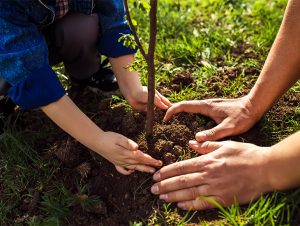
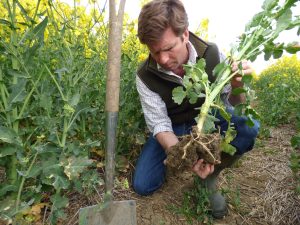
LEAF’s dedication to promoting sustainable farming practices has made a substantial impact on the agricultural sector and beyond. By providing farmers with the tools to embrace Integrated Farm Management, offering the LEAF Marque certification to assure consumers and fostering collaborations through their vast network, LEAF has become a driving force for positive change in 27 countries with over 900 LEAF Marque certified businesses worldwide, including over 40% of UK grown fruit and vegetables grown on LEAF Marque farms.
Working alongside LEAF, agricultural stakeholders worldwide are adopting sustainable practices, enhancing biodiversity and conserving vital natural resources. As we collectively address the challenges of climate change, LEAF’s commitment to cultivating sustainability serves as an inspiring model for organisations, farmers, and consumers alike. Together, with organisations like LEAF leading the way, we can build a more sustainable future for generations to come.
Our Journey to Carbon Neutrality
In a world where environmental concerns have reached a critical point, companies embracing sustainability become beacons of hope. At Farrington’s Mellow Yellow, we have taken a remarkable step towards mitigating our environmental impact. With a resolute commitment to sustainability, we have achieved carbon neutrality while collaborating with esteemed organisations like LEAF (Linking Environment And Farming) and One Carbon World. This blog post delves into Farrington’s Mellow Yellow’s remarkable journey towards carbon neutrality and our partnerships that contribute to a greener, more sustainable future.
The Vision for Sustainability
Even before launching Mellow Yellow, sustainability was at the heart of Duncan Farrington’s farming practises. Working to LEAF Integrated Farm Management principles, he used energy efficient machinery, planted trees hedges and wildflower areas to increase biodiversity, and recognised the importance looking after soils in growing the foods we eat. The principles of doing the right things with Mellow Yellow have always been deeply rooted in our commitment to the environment. From the very beginning, we envisioned creating a company that not only provided high-quality oils and dressings, but also operated responsibly, leaving a minimal ecological footprint. With this vision in mind, we set out on a journey to become carbon neutral.
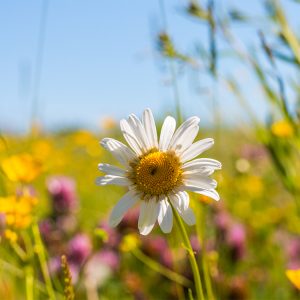
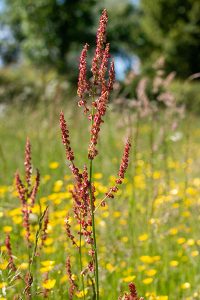
Becoming Carbon Neutral
Achieving carbon neutrality is no small feat, especially for a company operating in the agricultural sector. We adopted a multi-faceted approach to reduce our carbon emissions and offset the remaining unavoidable emissions. Through meticulous planning, innovative technologies, and sustainable practices, we managed to significantly decrease our carbon footprint.
We invested in energy-efficient machinery, optimised transportation routes and implemented renewable energy sources to reduce emissions throughout our supply chain. We also continue to focus on responsible land management and biodiversity conservation on our’s and our grower farms, supplying rapeseed to our factory, through the LEAF Marque accreditation .
Around the edges of our fields we have wildflowers. In these wildflower meadow margins, as they are known, we have a huge variety of different plant species, insects and birds, improving biodiversity and creating wildlife habitats. As well as providing habitats for insects and improving biodiversity, our wildflowers also help us out on the farm. The wildflowers attract pollinators, which are essential for crop pollination, plus the insects in the wildflowers act as a natural pest control on our crops.
On our roofs we have installed solar panels which generate around 50% of the electricity used in the business. This is combined with installing the latest LED lighting and most efficient compressor to run the bottling machinery, both of which reduce the amount of electricity used. We also encourage everyone to do the simple things like turning lights off when we they are not needed.
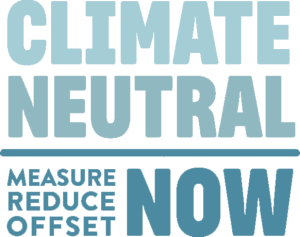

Collaborations with LEAF, One Carbon World and AgricaptureCO2
Farrington Oils’ journey towards sustainability was further strengthened by our collaborations with LEAF and One Carbon World. LEAF, a renowned organisation, works towards promoting sustainable farming practices that are beneficial for both the environment and the farmers. Through this partnership, we gained valuable insights and guidance on adopting regenerative agricultural practices that boost soil health and sequester carbon.
One Carbon World is a resource partner of the United Nations Climate Neutral Now initiative, is committed to emission reduction strategies and projects that meet the highest standards, reduce carbon emissions, and contribute to sustainable development. One carbon world played a crucial role in Mellow Yellow’s mission to achieve carbon neutrality. Carbon neutral means achieving net zero carbon dioxide emissions by balancing carbon emissions with carbon removal (often through carbon offsets).
To date our carbon neutrality has been achieved with the help of One Carbon World meticulously calculating carbon footprint from our years of data collected, whilst we have been trying to reduce the total emissions we generate. The net emissions are then offset through United Nations approved schemes.
As a sustainable farm-based business there is an opportunity to offset all of our emissions internally through the carbon dioxide absorbed in the soils we manage on our farm through a process called Carbon Sequestration. This is an area of interest that Duncan Farrington has looked at for over twenty years of analysis of his soils, but it is not yet recognised internationally as an accepted measure to reduce potential greenhouse gas emissions. Since becoming certified as Carbon Neutral, Farrington Oils have been invited to be the British case study in a pan European study called AgricaptureCO2 looking into the measurement and verification of soil carbon content and general farm biodiversity. Through this collaborative project it is hoped that sustainable farming can officially become part of the global solution to help reverse climate change.
Why we don’t plough
The plough turns over and breaks up the soil surface to create a seed bed to plant crops in. The advantages are that it provides soils free from weeds, provides good conditions and soil structure for plants to grow in. It also gives a nutritional boost to the plants as bacteria breakdown minerals for the plants to feed off.
However, ploughing can also be detrimental to the environment for several reasons. Firstly, it disrupts the soil structure, leading to erosion and loss of valuable topsoil, which affects soil fertility and water retention. Secondly, ploughing releases carbon dioxide stored in the soil into the atmosphere, contributing to greenhouse gas emissions and climate change.
Sustainable farming can help preserve soil health, reduce carbon emissions and promote environmental conservation.
Empowering Consumers
In addition to our internal efforts, we have also made it a priority to educate and empower consumers to make sustainable choices. We transparently share our sustainability journey with our customers, encouraging you to join the movement towards a greener future. By supporting the Mellow Yellow brand, you become part of a collective effort to combat climate change and preserve the planet for future generations.
Our remarkable achievement at Farrington Oils of becoming carbon neutral is a testament to the power of dedication, collaboration, and innovation in the face of environmental challenges. Our partnerships with LEAF, One Carbon World and AgricaptureCO2 have proven that collective action can make a meaningful impact in the fight against climate change.
Let’s continue to work together towards a carbon-neutral and sustainable future.
The environment has always been at the heart of everything we do.
rePurpose Global is committed to tackling the plastic pollution crisis head-on by offering sustainable, eco-friendly alternatives and actively working towards a plastic-neutral future. Together, we are committed to making a tangible difference in protecting our planet and creating a more sustainable future. In this blog post, we will explore the collaboration between Farrington Oils and Repurpose Global, whilst highlighting the shared values and the transformative impact we have achieved in 2022.
Plastic Waste
Global plastic waste production has reached over 400 million tonnes annually. Just 9% of this will be recycled. Most of it will find its way into landfills or leak into nature, creating havoc across coastlines and fragile ecosystems.
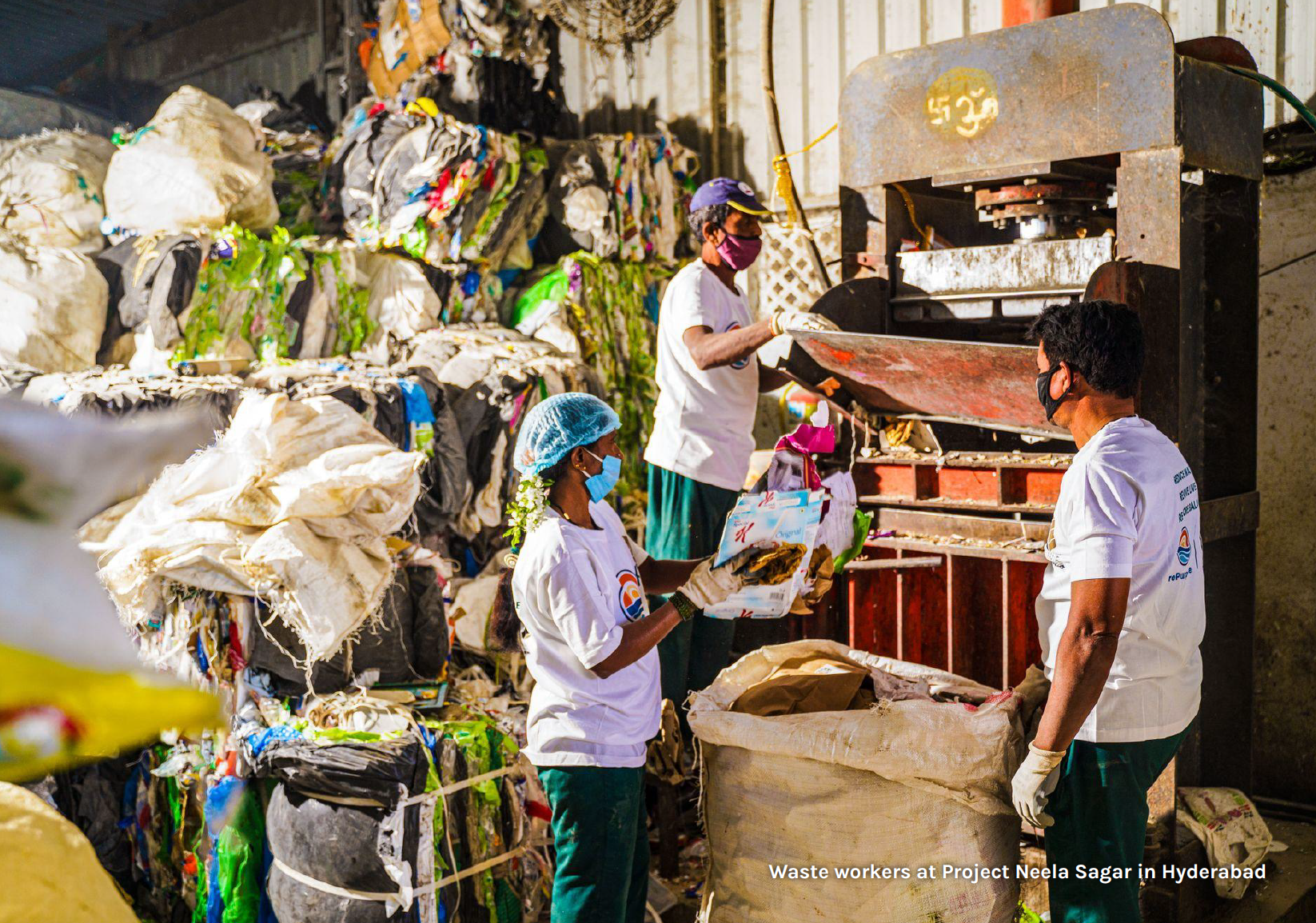
Overall, rePurpose Global, has been able to recover a huge 8,845 tonnes of plastic from nature across 6 countries as of December 2022 – That’s about the weight of 491 Million plastic bottles! Of the 8,845 tonnes of plastic, a massive 862 tonnes of plastic was recovered at Project Neela Sagar alone.
Project Neela Sagar
Through Project Neela Sagar, rePurpose Global endeavours to recover over 9,000 tonnes of low-value plastic waste by 2030, while positively impacting the lives of 1,000+ informal waste collectors.
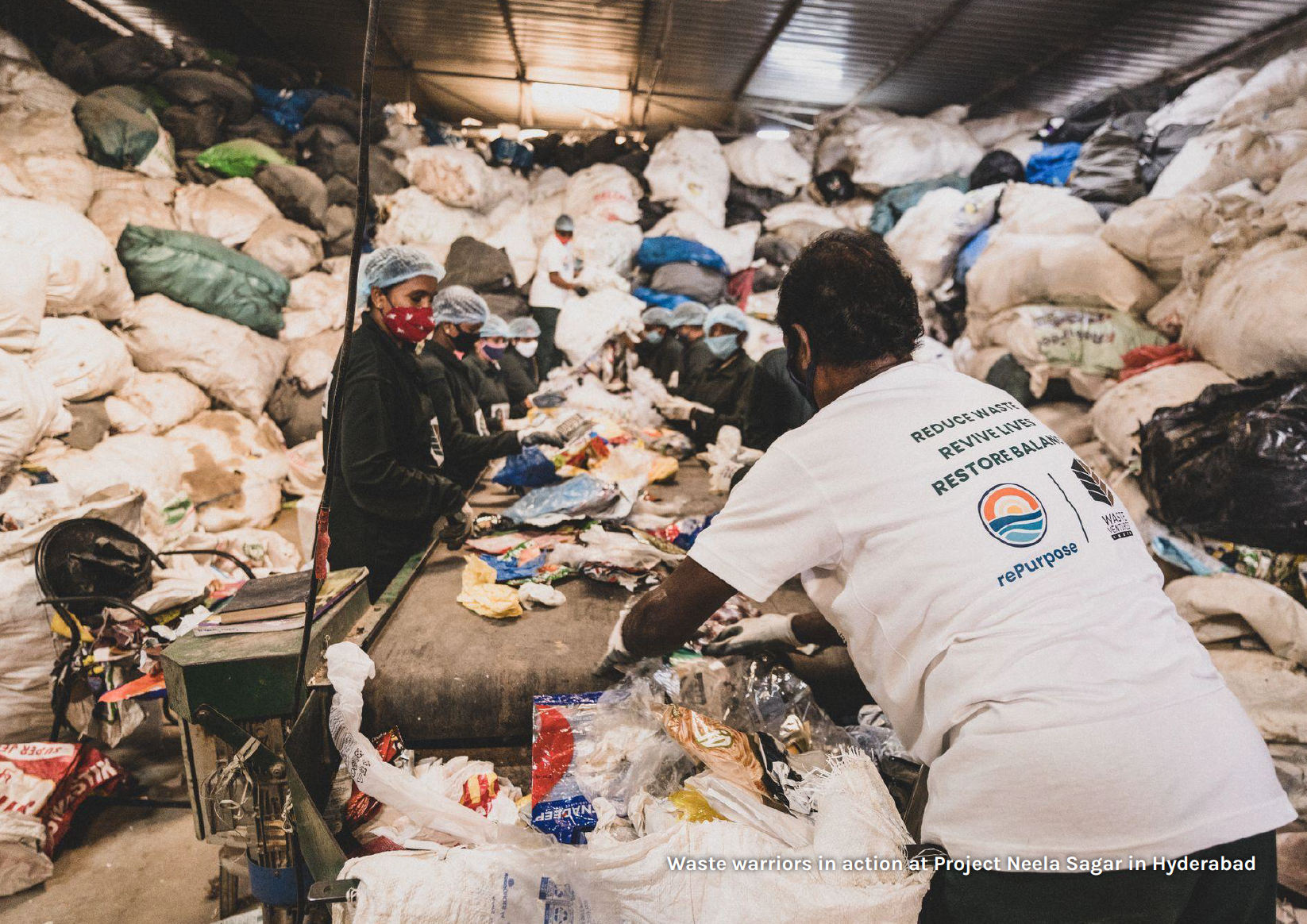
Farrington Oils and rePurpose Global understand the significance of industry leadership in driving sustainable change. By working together, we aim to inspire other businesses within the farming sector to adopt eco-friendly practices. We are deeply committed to sustainability, and our mission is to gradually reduce our plastic footprint year on year.
Becoming Plastic Neutral
You can read how we firstly became Plastic Neutral and the work we have been doing with rePurpose in a previous blog post – simply click here.
If you would like to work out your own plastic footprint, rePurpose have a simple calculator for you here and even have options for individuals to offset their personal footprints and become plastic neutral.
Sources: rePurpose, Neela Sagar 2022 report.
At Farrington Oils, we believe in making a positive impact on the world around us. This year, we are proud to announce our chosen charity, Toilet Twinning, as part of our commitment to improving sanitation and transforming lives. Toilet Twinning is an inspiring organisation dedicated to addressing the global sanitation crisis by providing access to clean and safe toilets for those in need. In this blog post, we will delve into the vital work of Toilet Twinning, the impact it has on communities, and how you can get involved to help make a difference.
We have proudly twinned all 3 toilets available at Farrington Oils HQ with the following…
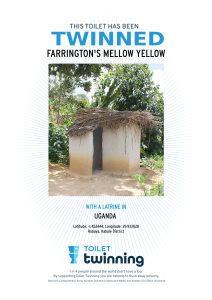 Uganda, Rubaya, Kabale District
Uganda, Rubaya, Kabale District
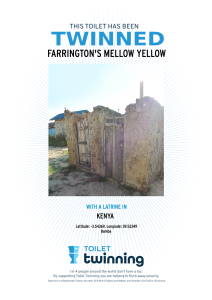 Kenya, Bamba
Kenya, Bamba
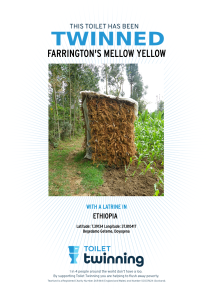 Ethiopia, Begedamo Geteme, Doyogena
Ethiopia, Begedamo Geteme, Doyogena
Why Toilet Twinning?
The underlying principle of Toilet Twinning is to raise awareness about the global sanitation crisis and engage individuals and communities in taking practical steps towards addressing it. Through their website, people can “twin” their toilets by making a donation, which goes directly towards funding the building and maintenance of latrines in areas where they are desperately needed. Toilet Twinning funds global water and sanitation programmes run by Tearfund.
One of the remarkable aspects of Toilet Twinning is the personal connection it creates between donors and the communities they are supporting. After twinning their toilet, individuals receive a certificate that displays the GPS coordinates of the latrine block they are supporting, along with a photograph and information about the location. This tangible connection helps donors understand the impact of their contribution and the transformative effect it can have on people’s lives.
Tearfund’s partners work alongside communities, bringing people together in workshops and action groups focused on issues that concern them – such as farming. You can view their most recent report here.
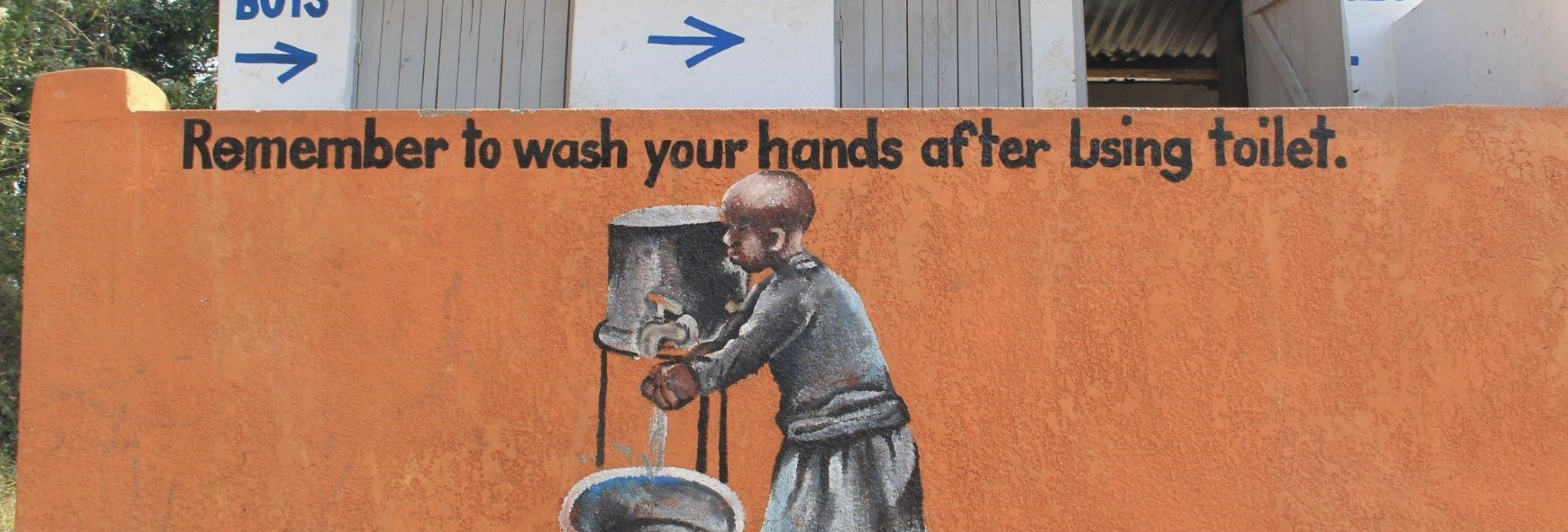
The Impact of Toilet Twinning:
The work of Toilet Twinning extends beyond just providing toilets. They also emphasise the importance of proper hygiene practices and provide education and training to communities on sanitation and health-related issues. By taking a holistic approach, the organisation aims to improve overall health, reduce the spread of diseases, and empower communities to break free from the cycle of poverty and illness.
Toilet Twinning mission aligns with the Sustainable Development Goals set by the United Nations, specifically Goal 6, which focuses on ensuring access to clean water and sanitation for all. By supporting the organisation’s efforts, individuals and organisations contribute to global efforts to achieve this crucial goal, making a tangible and lasting difference in the lives of vulnerable communities.
How You Can Make a Difference:
We encourage everyone to join us in supporting Toilet Twinning.
Every pound counts and goes directly towards building toilets, providing hygiene education, and supporting ongoing projects. Your generosity can transform lives and communities.
Toilet Twinning is a unique and innovative initiative that combines awareness-raising, fundraising, and community engagement to address the global sanitation crisis. By twinning toilets, individuals and organisations play a vital role in improving hygiene conditions, promoting health, and empowering communities in need. Through their work, they exemplify the power of collective action and individual contributions in creating a world where everyone has access to safe and dignified sanitation facilities.
Our Support
At Farrington Oils we are excited to support Toilet Twinning and contribute to their mission of improving sanitation worldwide. Together, we can help break the cycle of poverty, improve health outcomes, and empower communities to thrive. Let’s unite and make a difference by providing clean and safe toilets to those in need. Join us in supporting Toilet Twinning and be a part of this transformative journey. Together, we can create a world where everyone has access to basic sanitation and the opportunity to lead a healthier, more dignified life.
Images sourced from toilettwinning.org
If you’ve used Mellow Yellow Cold Pressed Rapeseed Oil for deep frying, follow our tips on what to do with oil after deep frying…
Reuse
As Mellow Yellow Rapeseed Oil has a high smoke point, you can reuse this oil after deep frying. Once you have used your oil for deep frying, leave it to cool down. Once it is completely cool, pour it through a muslin cloth, coffee filter paper or kitchen roll into a glass bottle or jar that can be sealed. Label the jar with the date you used it for deep frying, what you used it for and the best before date. Store your oil in a cool, dark place and use within six weeks. It is best to use the oil for deep frying similar foods in case any flavour has been imparted into the oil.
Recycle
Containers of cooking oil can be recycled by some local recycling centres. Check with your local council to see if they offer this service and then take it to the recycling centre in a sealed bottle or jar.
Dispose
If you need to dispose of your oil, you could put a few sheets of something absorbent, eg, kitchen roll or newspaper into your bin and then pour the oil onto this. The oil should then be absorbed and won’t make a mess in your bin. If you don’t have anything absorbent to pour the oil onto, you can wait until it has cooled down and then pour it either back into the bottle or into a glass jar with a lid and place in your rubbish bin.
What not to do with oil after deep frying
– Touch too soon – Make sure to leave to cool fully, oil gets VERY hot, so make sure it has had plenty of time to cool down before you touch it.
– Put on the compost heap – Pouring leftover cooking oil onto your compost heap can attract rodents and slow down the composting process.
– Pour down the sink – Never pour leftover oil down your sink as it will eventually blog the pipes and contributes to larger drainage problems.
Together we can go far.
Occasionally in life we meet people that inspire us, they help shape the way we think, evolve our attitudes and influence our approach to how we live our lives. It could be an enthusiastic teacher at school inspiring one to see the beauty in trigonometry or getting that little bit extra out of you on the sports field; an elder family relation full of wisdom and the fun in sharing their knowledge with the younger generation; a work colleague happy to spend time mentoring you in your professional progression. One such person who has certainly influenced and inspired me over the years was Caroline Drummond MBE, Chief Executive of LEAF (Linking Environment And Farming) for over thirty years.
I first joined LEAF on leaving university in 1993, full of excitement to join the industry I was proud to grow up in, but at the same time I was aware that agriculture was often in the press for the wrong reasons, mostly unfairly, but occasionally I could see how farmers and the farming industry perhaps deserved some of the criticism for poor practices. I felt we could do better.
Sustainable, environmentally conscious food production
LEAFwas young, keen, full of passion and energy too, led by Caroline who I came to know very well and enjoyed working with over the years; she became a good friend as well as a great mentor. LEAF was the brainchild of Norfolk farmer and journalist, David Richardson and a small group of industry figures from a diverse range of organisations. They could see that farming would benefit from a system to help farmers produce healthy food in a more sustainable, environmentally conscious way and, importantly, to go out and tell the general public, our customers what great work we were doing. Caroline was the first employee of LEAF, leading the organisation since its inception in 1991 until her passing in May 2022. She had a great skill for making contacts far and wide, her contacts book was second to none. She has been instrumental in ‘Linking’ people from different sectors together for the collective good. Researchers, farmers, policy makers, NGOs, politicians, retailers, nutritionists, teachers and consumers. Caroline had a great skill bringing us all together, empowering us to find common ground, leading to shared solutions.
Demonstrating our environmental credentials through LEAF
As a farmer, I learnt how to farm better through the annual LEAF Sustainable Farming Review, I learnt how to interact with the general public better through the Speak Out communications initiative, before proudly becoming a LEAF Demonstration Farm in 2003. When I launched Farrington’s Mellow Yellow®, the LEAF Marque offered me a powerful tool to help me demonstrate the sustainable credentials of our products with a credibility that retailers trust, and customers are looking for in the food choices they make. Behind all these initiatives, Caroline’s driving force, passion and positive attitude to make things happen was ever present. Caroline remarked to me once: “LEAF gave me wings,” but in reality I believe it was Caroline who gave me and so many others belief in our abilities and the confidence to fly high.
Doing things better. Continually improving.
Thirty one years after LEAF started, the perception and trust of agriculture and farmers to the wider public has improved beyond all recognition from when I first joined. Farmers are doing things better and we should be proud of our achievements. LEAF farmers are growing their crops in a more sustainable manner through regenerative farming methods; raising livestock with animal welfare standards recognised globally as the benchmark for others to aim for; creating more diverse biodiversity and wildlife habitats around our farms; welcoming the general public onto our farms so they can engage with how their food is produced through LEAF Open Farm Sunday. It is because of LEAF and Caroline’s zeal to do things better, that we know farming and taking care of the environment is not only possible, it’s the only way to farm in the long term.
Caroline loved her quotes, two of which I would like to share here. “If you want to go fast, go alone, if you want to go far go together.” Working with others and especially those we don’t always share the same views with, means we can all go far. Secondly, “When all is said and done, there is often more said than done.” Caroline was the complete antithesis of this, she achieved so much to be proud of and started something very special. It is now time for all of us to continue her great legacy.
A lasting legacy
In memory of Caroline, LEAF have launched the The Sustainability Innovation Award, to inspire others to continue her journey, maintain the momentum she has generated and advance more sustainable farming solutions.
Through a dedicated Memorial Trust, the award will be made annually to an individual or organisation working to deliver innovative climate positive actions, build resilience in our food production systems or in some way, supports the health, diversity and enrichment of food, farms, the environment, and society.
At Farrington’s Mellow Yellow and for me personally, we think this is an excellent cause in memory of someone I was so proud to know and work with; Caroline was my environmental conscience for more than 25 years. LEAF’s Sustainability Innovation Award, set up in her memory will ensure her legacy continues through travel and discovery, research or engagement. It will help drive the pursuit of new and innovative environmental solutions that our planet and society so desperately needs.
We are very proud to support the award and all its endeavours.
If you would like to contribute to the Caroline Drummond Memorial Trust Fund, please contact LEAF.
– Duncan Farrington
Success at Great Taste Awards 2022!
We are incredibly proud of our range of sustainable products! In total we have won FOUR stars across 3 products at the 2022 Great Taste Awards for our Farrington’s Mellow Yellow products this year. The judges have awarded an incredible 2 stars Great Taste award to our versatile Cold Pressed Rapeseed Oil! For most products, this is their second, or even third Great Taste award but for our Smoked Oil, this is the first time it has been awarded a Great Taste star and we couldn’t be happier!
The Great Taste awards are the world’s largest and most trusted food and drink awards, with a panel of over 500 experts judging each product, being described as the ‘Oscars of the food world’. This year, 12,366 food and drink products entered into these prestigious awards, with only the very best products being awarded the coveted stars.
Here’s what the judges had to say about our products:
Cold Pressed Rapeseed Oil – 2 stars: Liquid Gold! A pleasingly golden oil, lightly aromatic, clean and fresh, nutty with light brassica notes. The texture was rich and smooth. The flavour although subtle, was wonderfully nutty and buttery. Very well done.
Honey & Mustard Dressing – 1 star: Glistening dressing with mustard seeds evident and glorious wafts of rapeseed oil. We loved the nutty rich flavour from the oil and thought the sweetness of the honey balanced so well with the bright acidity. Tastes fresh and home made.
Oak Smoked Rapeseed Oil – 1 star: Delicious oil well crafted and produced. This beautiful clear, golden oil almost glistens in the glass. There is a smoky, herbaceous aroma. On tasting it is clean and creamy so it fills the mouth and the gentle smokiness comes through very well and lingers on the finish.
We’re so proud of all our brilliant products, so if you haven’t tried them all, head over to our Where to Buy page and find your local stockist!
We have always firmly believed that a hard day’s work deserves a fair day’s pay. Our team works incredibly hard to produce our Mellow Yellow products to the highest quality, working with expensive equipment and requiring many skills to get the job done. Because of this, we have always paid above the minimum wage and now we are very proud to announce that we have now been certified as a Living Wage Employer!
What is a Living Wage Employer?
In the UK, the National Minimum Wage applies to all those under 23 years of age, and then the National Living Wage applies to all those above 23 years of age. However, this National Living Wage does not take into account the actual, real-world cost of living. So that is where the Living Wage Foundation steps in and each year they calculate the real Living Wage, based on rent, bills, etc.
It applies to all workers over 18, recognising that young people have the same living costs as everyone else. There is also a higher rate for London which takes into account the higher living costs in the capital.
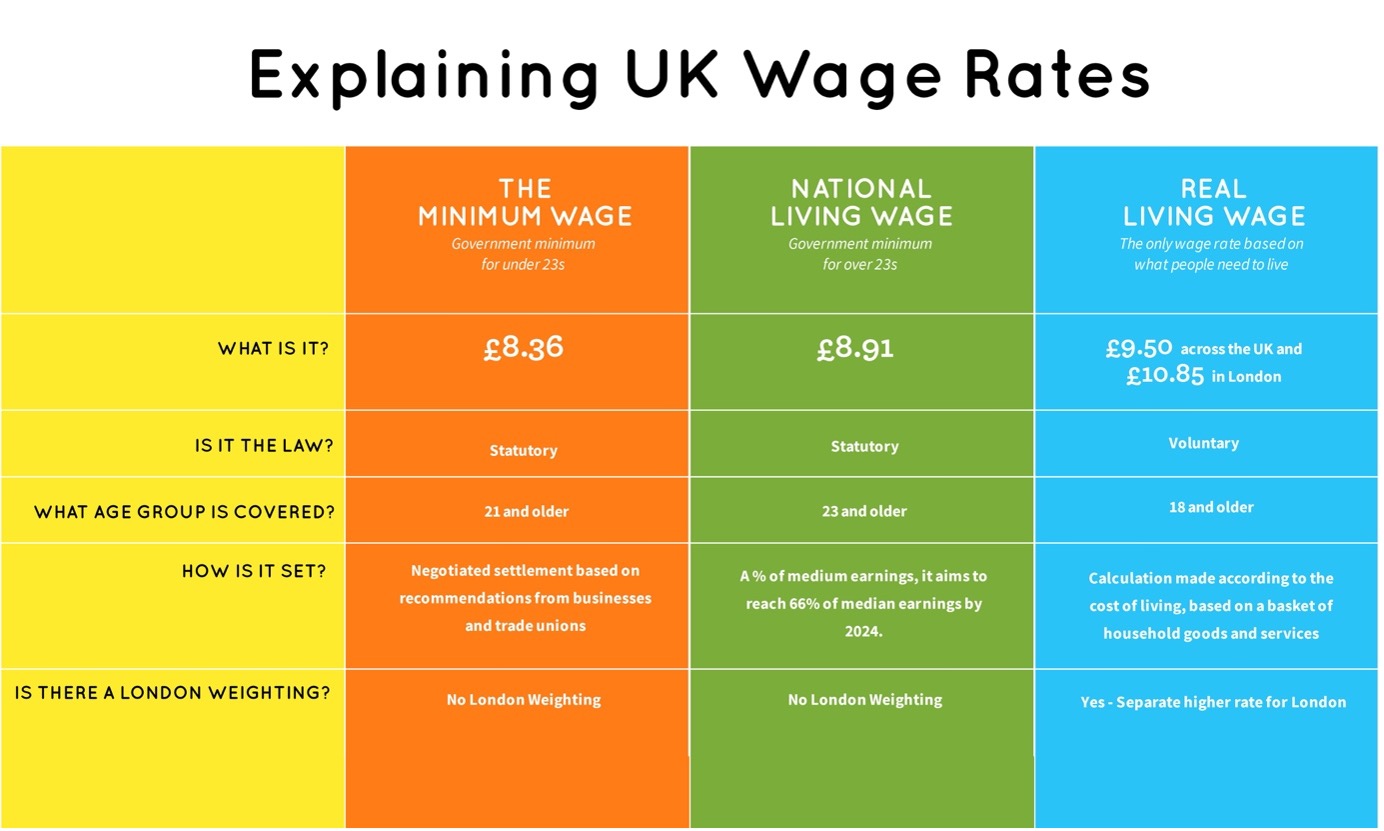
The real Living Wage is independently calculated based on a public consultation method called Minimum Income Standard (MIS). MIS identifies what people need to be able to afford as a minimum. This is fed into a calculation of what someone needs to earn as a full-time salary, which is then converted to an hourly rate.
Why pay the Living Wage?
We firmly believe that all employees deserve a wage which meets everyday needs – like the weekly shop, the electricity bill or a surprise trip to the dentist.
The past year’s pandemic has affected us all, but the poorest have been hit hardest. Two thirds of those earning below the Living Wage saw their pay fall last year, with devastating effects. More than a quarter of those earning below the real Living Wage were forced to regularly skip meals, while nearly half saw a negative impact on their levels of anxiety. Despite the pandemic shining a spotlight on the importance of low paid workers, over 5.5 million continue to earn less than the Living Wage, that’s 20.3% of all workers in the UK not earning a real Living Wage.
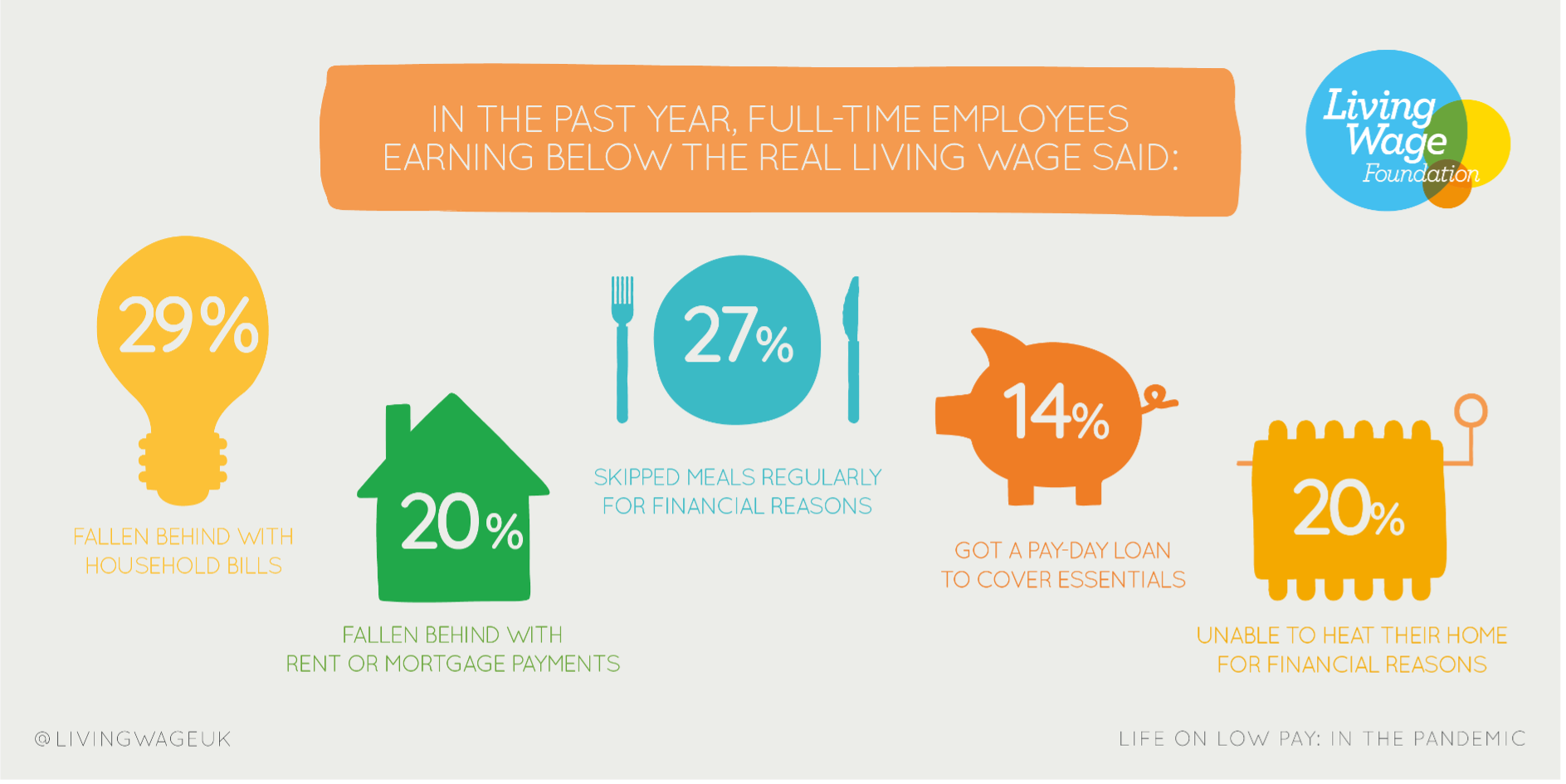
![]() 93% of university graduates want to work for a Living Wage Employer
93% of university graduates want to work for a Living Wage Employer
![]() 93% of the Living Wage network say it has benefitted their business
93% of the Living Wage network say it has benefitted their business
![]() 90% of consumers agree that pay should reflect living costs
90% of consumers agree that pay should reflect living costs
![]() 85% of Living Wage Employers said it has enhanced their reputation as an employer
85% of Living Wage Employers said it has enhanced their reputation as an employer
We are so proud to be a Living Wage Employer, showing our commitment to our employees and our belief that you should be able to earn a wage you can live on.
Who else pays the Living Wage?
The real Living Wage is the only UK wage rate that is voluntarily paid by over 8,000 UK businesses, from major UK corporations to small and medium businesses like us!
You can find Living Wage Employers near you with this map: https://www.livingwage.org.uk/living-wage-map
![]()
Learn more about the real Living Wage here: https://www.livingwage.org.uk/
Around the edges of our fields, there’s something really special; wildflowers. In these wildflower meadow margins, as they are known, we have a huge variety of different plant species, insects and birds, improving biodiversity and creating wildlife habitats. In the summer months, these wildflower meadow margins come alive with the buzzing and fluttering of bees, butterflies and many other insects.
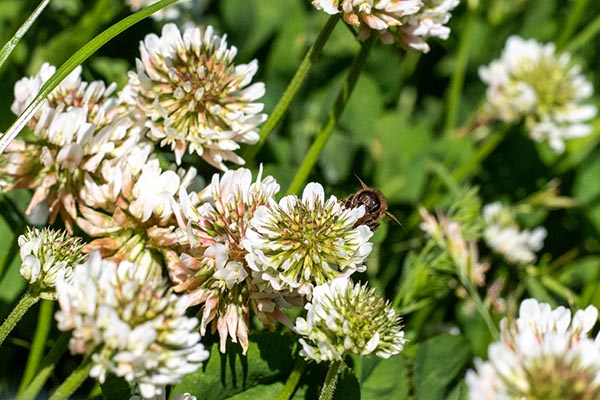
As well as providing habitats for insects and improving biodiversity, our wildflowers also help us out on the farm. The wildflowers attract pollinators, which are essential for crop pollination, plus the insects in the wildflowers act as a natural pest control on our crops.
Did you know that you can bring wildflowers into your own garden too? Set aside an area of lawn, part of a border, or if you are limited on space, a large container will do! Either stop mowing a patch of your lawn to encourage long grass to grow for insects to thrive in, provide shelter for small mammals and create feeding opportunities for birds. Or if you’d rather start from scratch, pick a spot of bare, unproductive soil and sow a wildflower seed mix in autumn, or spring if you have a heavy clay soil, rake the seeds, water thoroughly and wait for a beautiful patch of wildflowers to appear come summer.
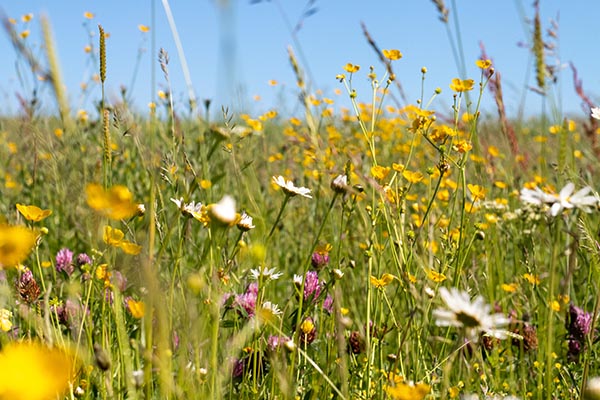
Here we have just some of the wildflowers growing in our wildflower meadow margins:
Oxeye Daisies
These are native daisies but are bigger and taller than the standard daisies you may see in your lawn. The yellow coloured centre of the oxeye daisy is packed full of pollen and nectar and attracts various pollinating insects such as butterflies, bees and hoverflies.
The heads of these plants can also be used to make chamomile tea.

Buttercups
The pretty yellow flowers are buttercups, they are very common in Britain thanks to our moist soils. They flower from May to August and attract flies, beetles and bees including honeybees.
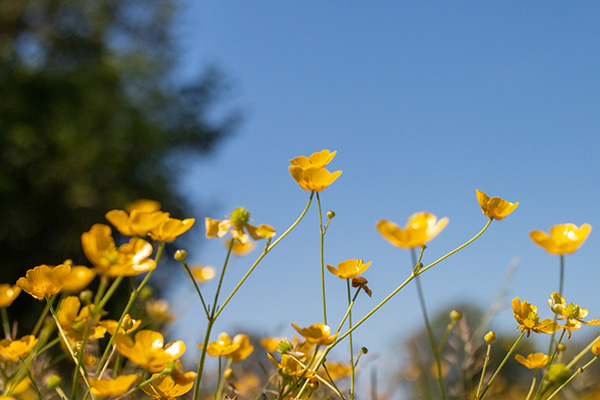
Clover
We have two types of clover growing: white clover and red clover. These are both very common in the UK and are typically found in meadows, lawns and roadsides. These clovers attract all kinds of bumblebees, and the white clover is particularly loved by the Common Blue butterfly. This lucky wildflower sometimes produces four-leaf clovers, so keep an eye out for one of these!
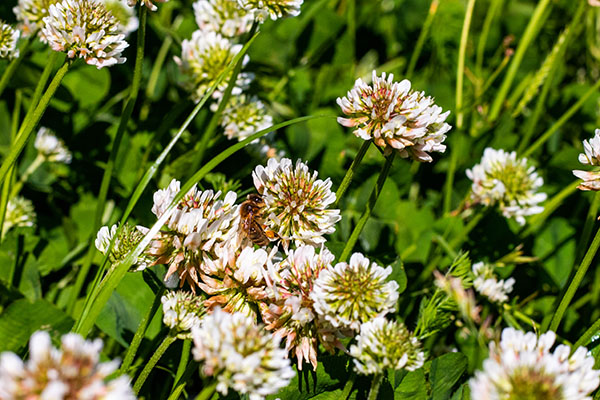
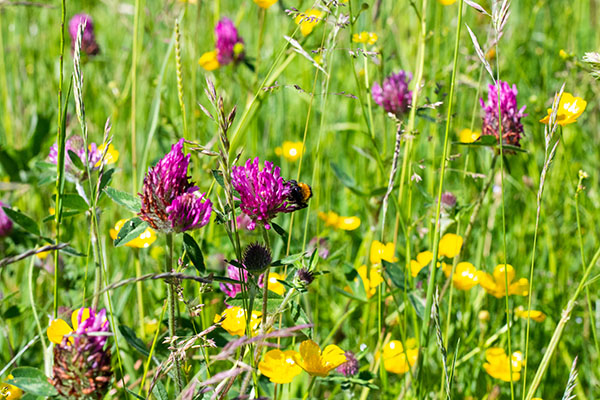
Common Knapweed
This purple flower looks very much like a thistle and is very common in our wildflower meadow margins. A favourite with butterflies, these flowers are often surrounded by Cabbage Whites and Meadow Browns!
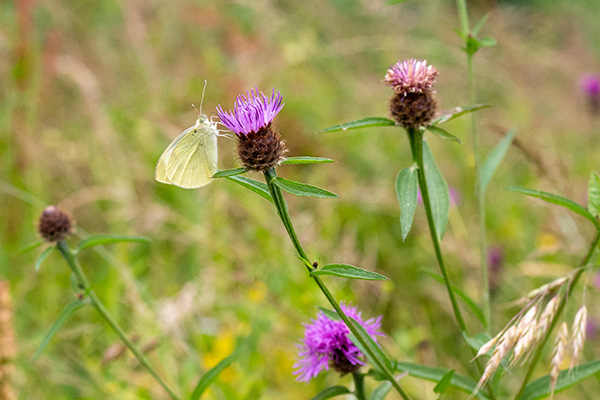
Tufted Vetch
These pretty violet flowers are a member of the pea family and flower from June to September. Also known as ‘cow vetch’ or ‘bird vetch’, it can be found in woodlands, grassland, and even coastal areas. When the seed pods are ripe, they turn black and have a similar shape to peapods.
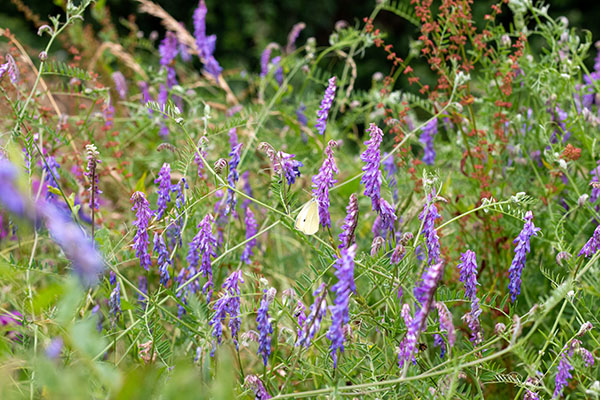
Sorrel
Commonly found in grasslands, woodland edges and roadside verges, as well as wildflower meadows, this delicate flower adds a sprinkling of bright crimson and pink throughout the green grasses. The arrow shaped leaves have a particularly tart taste, giving this plant its nickname of ‘sour ducks’.
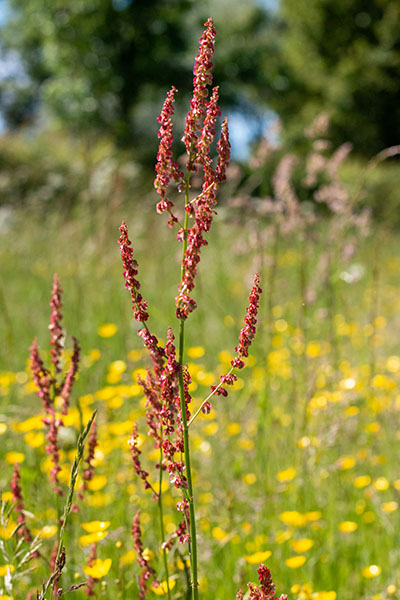
Cow Parsley
With umbrella-like clusters of white, frothy flowers, cow parsley grows very quickly in the summer before dying back. With large, flat umbrellas of small, white flowers and large, fern-like leaves, cow parsley stands out in a wildflower meadow. If you crush the leaves between your fingers, it will give out a very strong, aniseed scent.
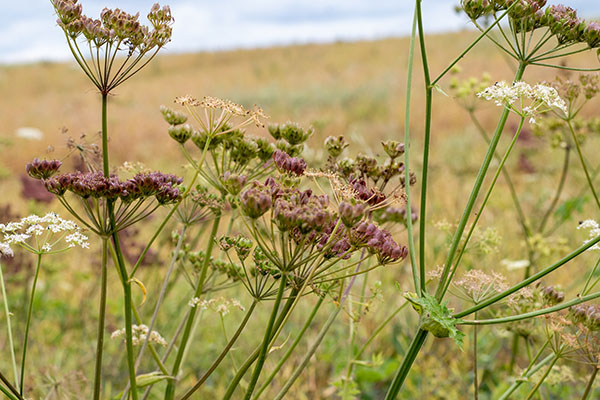
Wild Carrot
Similar to cow parsley, wild carrot has umbrella-shaped flower heads, which start out red and bloom into white flowers from June to September. The leaves and roots of wild carrot smell just like the carrots we cook in our kitchens, but the roots do not form the big, orange vegetable we are familiar with. This plant particularly like chalky soils.
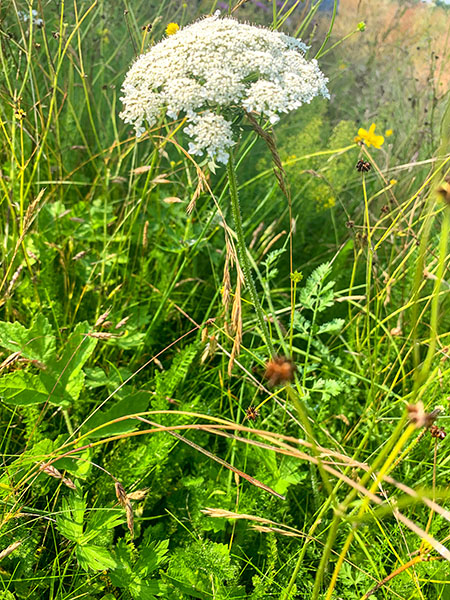
We are absolutely delighted to announce that we have won a prestigious Queen’s Award for Enterprise for Sustainable Development! Farrington’s Mellow Yellow is one of 205 organisations nationally to be granted an esteemed Queen’s Award for Enterprise in 2021 and one of only 17 to be recognised for our excellence in sustainable development.
We have been awarded a Queen’s Award for our industry leading approach to sustainability: from our commitment to carbon and plastic neutrality, to our LEAF (Linking Environment And Farming) Marque standards, to Duncan’s work monitoring and increasing the carbon stored in our soils.

“Winning a Queen’s Award for Enterprise is a huge honour, and being awarded it for sustainable development in particular is a real testament to our commitment to the environment! Sustainability is at the heart of everything we do and I am so proud to be recognised for our decades of hard work and dedication in this area.
Now more than ever, we all need to put our planet first, working towards a more sustainable future. I hope that seeing a small company from a village in Northamptonshire win such a prestigious award will encourage other small and medium sized businesses to take the next step in their sustainability journey, so we can all do our bit for the planet.”
– Duncan Farrington
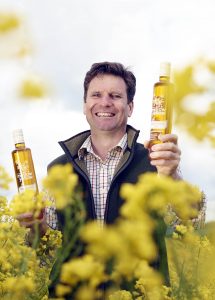
Now in its 55th year, the Queen’s Awards for Enterprise are the most prestigious business awards in the country. Following on from our award win, we will be continuing our sustainability work with Duncan involved in an EU funded project called AgricaptureCO2 working towards creating a globally recognised standard for measuring soil carbon content.
Learn more about how we look after the environment…
Carbon Neutral
We have measured, reduced and offset all of our carbon emissions and achieved the Carbon Neutral Gold Standard from the United Nations. We are also signatories of the United Nations Climate Neutral Now Initiative.
After reducing our carbon emissions through LEAF farming strategies, we offset our remaining carbon emissions by supporting reforestation initiatives and green energy schemes. This means that Farrington’s Mellow Yellow is not adding any emissions to our atmosphere.

Plastic Neutral
We have partnered with rePurpose Global, and we now fund the removal of the same amount of plastic from the environment as we use in all of our packaging.
This means that for every 1 kg of plastic in Farrington’s Mellow Yellow packaging, we fund the removal & recycling of 1 kg of plastic that would otherwise have been landfilled, flushed into our oceans or littered our environment.
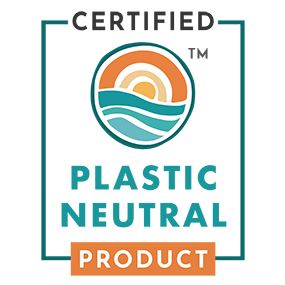
LEAF Marque
We are a LEAF (Linking Environment And Farming) Marque producer, this means we are at the forefront of environmentally aware agriculture.
LEAF encourages sustainable and environmentally responsible farming through a system called Integrated Farm Management. In simple terms, this means they encourage farmers to look at each part of their farm individually and ensure the whole farming process is environmentally sustainable.
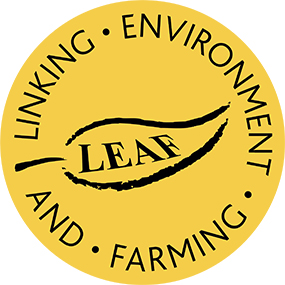
Soil Carbon Sequestration
Soil is a brilliantly effective carbon store. The world’s soils actually hold more than three times the amount of carbon than is in the atmosphere!
The process of soil storing carbon is called carbon sequestration and through our sustainable farming, we are storing a huge amount of carbon in our soils, stopping it being released into our atmosphere.

Solar Panels
We have installed solar panels on our barn roofs so that the power of the sun not only helps grow our crops, but now also helps power our oil presses.
Our solar panels can be found on two barn roofs, which are generating over half the total electricity we use at Bottom Farm in a completely renewable and environmentally friendly way!
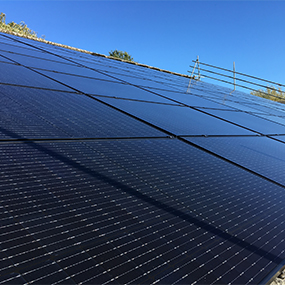
Tree Planting
Trees are fantastic for absorbing carbon dioxide from the atmosphere, providing shelter and homes for birds, insects and small mammals, and helping to reduce flooding and soil erosion.
Over the years, Duncan & his father have planted thousands of trees on our farm and last year we held a community tree planting event, getting a further 100 trees in the ground! Read more here.
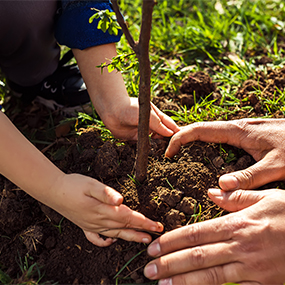

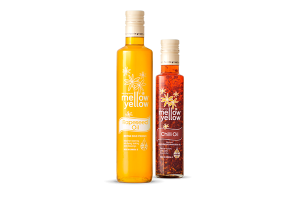 Oils
Oils Rapeseed Oil
Rapeseed Oil Chili Oil
Chili Oil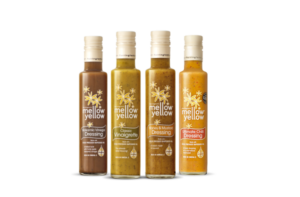 Dressings
Dressings Classic Vinaigrette
Classic Vinaigrette Balsamic Dressing
Balsamic Dressing Honey & Mustard
Honey & Mustard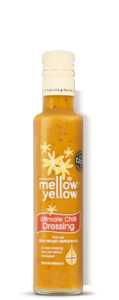 Ultimate Chilli Dressing
Ultimate Chilli Dressing